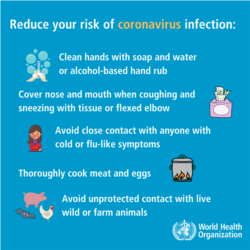More than 100 people have now died from the new coronavirus. The number of people infected in mainland China increased sharply in one day -- from 2,700 Monday to more than 4,500 Tuesday. The increase comes even as China takes strong measures to contain the spread of the disease.
What is a coronavirus?
Coronaviruses are a large family of viruses that cause disease in mammals and birds. Coronaviruses can cause illnesses that range from the common cold to much more severe illnesses like Middle East Respiratory Syndrome (MERS) and Severe Acute Respiratory Syndrome (SARS).
Experts still do not have a clear picture of the severity of the new coronavirus.
What is a new coronavirus?
Officials are calling the disease a “novel” or new coronavirus because it has not been found before in humans.
The newly identified virus is thought to have spread to humans from wild animals sold at a market in Wuhan, in central China’s Hubei province. But it is now spreading between people.
Chinese officials say the disease is able to spread from one person to another even before any actual signs appear. This makes it especially hard to contain.
What are the signs of the new coronavirus?
Signs of the disease among infected patients have included fever, cough, shortness of breath and general breathing difficulties. In more severe cases, the virus can cause pneumonia.
Some people report few or no signs, while others have gotten very sick or even died.
The U.S. Centers for Disease Control and Prevention reports that signs of the virus may appear between two and 14 days after being near someone who is infected.
Treatment and Prevention
There is no special treatment for the new coronavirus. However, many of its effects are treatable, as long as a patient is in fair health.
Because the virus is so new among humans, there is no available vaccine to protect against the disease. But the World Health Organization advises people to avoid close contact with anyone showing signs of a breathing sickness, such as coughing or sneezing. It also says people should wash their hands often and use safe food practices.
The U.S. Centers for Disease Control also published prevention tips. It says wash your hands for at least 20 seconds with soap and water; avoid touching your face with unwashed hands; stay home when you are sick; and clean objects and surfaces that are touched often.
I’m Ashley Thompson.
_____________________________________________________________
Words in This Story
mammal - n. a type of animal that feeds milk to its young and that usually has hair or fur covering most of its skin
pneumonia - n. a serious disease that affects the lungs and makes it difficult to breathe
practice - n. the action of doing or using something
tip - n. a piece of advice or useful information






